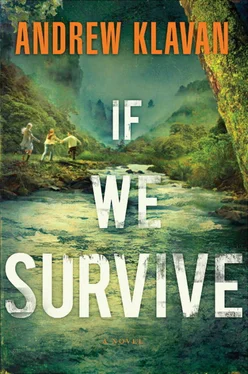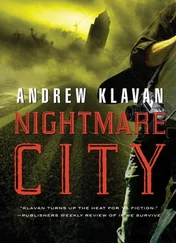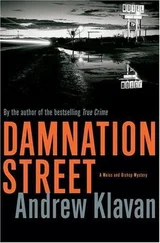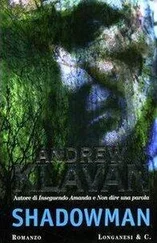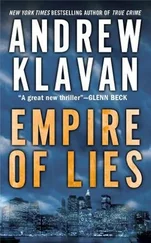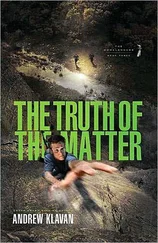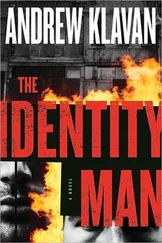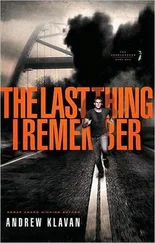“The soldiers were here, though,” said Jim. “I heard Paolo and Palmer talking about it. Apparently Palmer brought the villagers guns.”
“Really?”
“Yeah. When the soldiers came, they were surprised because the villagers fought them off. Paolo says they haven’t been back. So I guess Palmer must’ve known.”
“Known what?”
“Palmer must’ve known what the government was doing.”
The way he said this—that Palmer knew about the soldiers— was almost accusatory. It made me feel like I should say something, you know—defend Palmer. He had saved all our lives, after all. He’d saved mine more than once.
“So what?” I said. “So he knew about it. You knew about it…”
“I read about it in Cobar’s book and his op-eds in the newspapers.”
“So then anyone could know about it. And Palmer brought the people guns so they could defend themselves, so that’s a good thing, right?”
Jim didn’t answer. He just looked off in Palmer’s direction with a sort of sullen glare.
I was about to ask him what he was angry at Palmer for, but before I could, I saw Meredith coming toward us. She had left the crowd of villagers, but several of the little children had apparently adopted her. They were dancing around her the way they’d danced around Palmer.
“They say the storm is coming,” she told us. “The road won’t be usable again until the morning. We’ll have to stay the night.”
Well, that was fine with me. I was tired of walking. Hungry, thirsty. Wet, sweaty, smelly, generally disgusting. Spending the coming storm indoors—and getting a night’s sleep before moving on—these seemed like good ideas to me.
In fact, that night was pretty much the first non-horrible thing that had happened to us since Mendoza walked into the cantina and shot Carlos. The villagers gave us some fresh clothes to wear while our clothes dried out. I can’t tell you how good that felt—or how pretty the girls looked in the long, colorful native skirts. Then all the women rushed around bringing in the laundry before the rains came. And then they rushed around making dinner.
Paolo and Palmer, Jim and I, meanwhile, walked along the ridge to a small open field. The mountains fell away into flatlands below us, giving us a nice view for a pretty good distance. We could even make out a sort of blue haze near the horizon line that Palmer told us was Santa Maria, the capital. Paolo gestured out over the expanse, moving his hand back and forth and speaking quietly but with what seemed to me great seriousness.
“Can you tell what he’s saying?” I murmured to Jim.
“He says the rebels have control of everything from here to the capital. They’re patrolling the area with helicopters to make sure the government soldiers don’t try to regroup and make another attack. He says trying to get to the capital will be dangerous. If we’re spotted by one of the choppers, they’ll come after us, especially if they think Palmer’s with us.”
That surprised me. “The rebels are after Palmer?”
We were talking in low voices so as not to interrupt Paolo and Palmer, but I guess they heard us because Paolo turned to us and started speaking very quickly.
The afternoon had gotten very dark and now the black clouds let out a rumble of thunder. Paolo glanced up and spoke again and started moving back toward the center of town. He walked with Palmer while Jim and I trailed after.
“What’d he say?” I asked Jim.
“He was talking too fast,” Jim said. “I only got parts of it. Something about the guns Palmer was bringing people… but I’m not sure.”
The storm came just as we reached the house. It was nice to sit inside with a fire going in the fireplace and listen to the rain on the red tiles of the roof. I dozed off sitting by a wall, and when I woke up, the storm was subsiding and it was dinnertime. We sat around a wooden table and had a great meal of tortillas and rice and beans. Nicki and Meredith had helped Paolo’s wife and daughter prepare it.
“Boy, the guys get a good deal in this place,” said Nicki, sounding a little bit more normal than she had for a while. “The women cook and clean and the guys sit around and talk and sleep.”
“Sounds like a good system to me,” I said.
“Don’t get used to it,” Meredith said with a laugh. “We’re bound to get home sometime.”
All the while we were eating, Palmer and Paolo went on talking to each other. And Jim sat silently. Now and then, I’d glance his way and I’d see him watching Palmer with that same dark glare. What was his problem now, I wondered.
Finally, Paolo’s wife—Corinna, her name was—started to clear the dishes from the table. When she came to Palmer, she stopped. Then, sort of impulsively, she grabbed his head in her hands and gave him a great big smooch on the top of his head. This made both Palmer and Paolo laugh.
But somehow it seemed to really get on Jim’s nerves. “I don’t get it,” he said suddenly. He was talking directly to Palmer—and the words seemed to burst out of him before he could stop them.
Palmer glanced at him—and raised one eyebrow in a sort of comical, questioning look. “Something troubling you, Professor?” he drawled.
“I… I just… I don’t understand what you’re doing here.”
“I’m providing transportation to tourists like yourself,” Palmer said.
“You’re running guns,” said Jim. “Aren’t you?”
Until that moment, there had been a sort of general chatter at the table. Nicki and Meredith and I talking, and Corinna and her daughter, and Paolo and Palmer. But now everyone fell silent. Everyone looked at Jim and at Palmer and then down at the table.
The silence went on a long time—at least it felt that way to me. All the while Palmer kept looking at Jim, one eyebrow cocked in that mocking way of his.
Finally he said, “Now and then, I may have supplied a weapon or two to people who needed them.”
“ These people, you mean,” Jim insisted. “ These villagers. You brought guns to natives like these all over the country. You brought them weapons so they could defend themselves against the government.”
“I seem to remember something like that happening from time to time.”
“Because the government soldiers were murdering them, right? Their own citizens. The government was murdering the natives in order to terrorize them so they wouldn’t join Cobar and the rebellion.”
“I believe that was the general idea.”
“You fought the government… this murdering government that Fernandez Cobar has just overthrown. The same government that the United States—our country— us—supported and helped keep in power during the last revolution.”
Jim seemed to feel he had made some kind of important point here, because he sort of sat back in his chair and gave Palmer a triumphant glare.
But Palmer just shrugged. “You don’t like it, write your local congressman and complain,” he said. “From my point of view, if you’re interested, the US supported these government clowns back in the day when the Communists in the Soviet Union were trying to take the continent over—the continent and the world. The murderous Costa Verdes government stood against the Soviets—who murdered and enslaved a nice little chunk of humanity, if you remember— so the US stood with the Costa Verdes government. I’m sure if we could have found someone a bit more like Abraham Lincoln down here, we’d’ve supported him instead.”
“That’s why Mendoza didn’t kill you right off the bat,” said Jim bitterly. “He didn’t like you, but he thought you were a friend to the rebels. That’s why he didn’t kill you, isn’t it?”
“You’d have to ask him,” Palmer said. “I thought it was because of my sunny personality.”
Читать дальше
